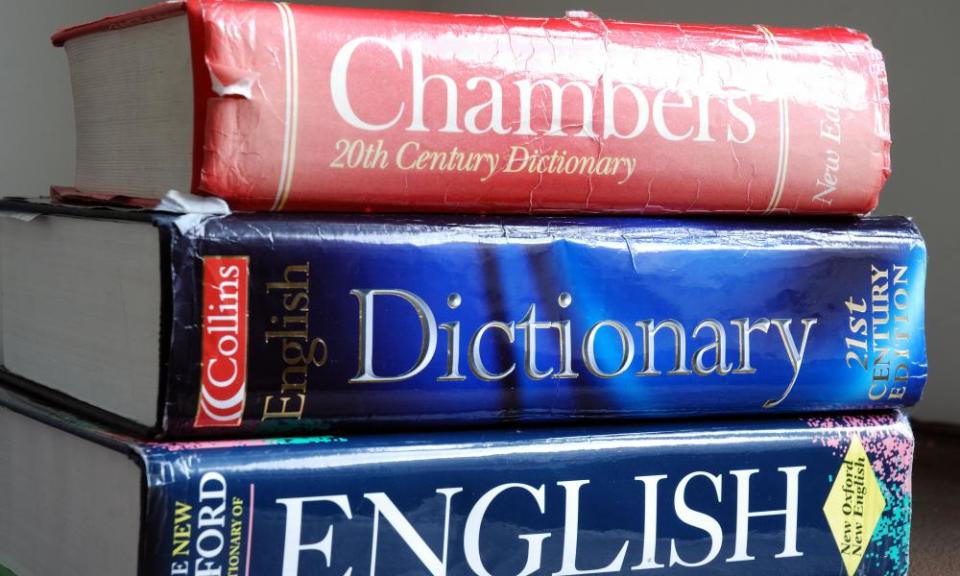Language evolves to reflect society – trans people are part of that society

Perhaps this is only true of the middle-aged but the social hiatus caused by the pandemic, coupled with the acceleration of discord in a few key arenas, means that you can meet a friend with whom you’ve agreed all your life and find yourself on opposite sides of the “trans debate”. I put that in inverted commas because the phrase is both euphemistic and insulting, dressing up as an open question what is actually more existential.
One side of the debate doesn’t think trans people are real; they might feel what they feel, but the rest of us don’t have to join them in that reality. If someone tried to engage me in an animal rights debate in which I was first required to prove that animals existed, I’d ask them to come back later.
Nonetheless, here I was, arguing with friends about language: the example was raised of a training course for doulas (freelance, new age birth partners). A trans woman wanted to join the class, and while the teaching doula had reservations, she assented. I didn’t get what the reservations were, to be honest: a doula is privately engaged – if you had a problem with a trans woman, you simply wouldn’t hire one.
The only objection I could divine was if you thought anyone who wasn’t a cis woman didn’t belong around childbirth; but that space has been unisex for years. When my son was born in 2007, my ex-husband, on poetic form, sent a text to his parents saying “born at 11.24 by the hands of big Ben” (we were in St Thomas’), and his mother thought we had a midwife called Ben. Male midwives were commonplace; it was only funny because I’d had a lot of drugs, and there’s a lot to be said for capital letters.
But back to the language problem: my friends told me the trans novice doula had gone on to object to the word “mother”, and this made the class impossible. Their argument was that using inclusive language led to the erasure of female-specific language and was illustrative of the fact that trans rights and women’s rights were in a zero-sum game; that the inclusion of one necessarily leads to the cancelling out of the other. I disagree.
It’s a huge bugbear on rightwing news sites such as Breitbart and the Federalist that all trans people are trying to ban the word “mother”. It’s true that, in a medical context, trans men don’t want to be addressed as mothers, since it forces them to choose between their identity as an individual and as a parent, but it doesn’t follow that they want to police all of us into never again mentioning our mothers. I’ve also had plenty of conversations with trans people about their mothers.
I too hate being called “mum” in medical appointments. Even as a cis woman, it forces you to choose between being an adult, with your name in the notes right there, and a biological function with clothes on (ideally). I’m allowed to hold that view without it being an insult to all mums everywhere because it’s understood that I don’t encapsulate and represent all cis women. That’s one of the many ways I know I’m not personally oppressed: another way is that I didn’t feel offended by the argument, or love my friends any less. Part of being an ally is recognising that you’re not the protagonist, and not summoning someone else’s hurt to feel it for yourself.
These are the building blocks of the gender-critical argument on language. First, take an elemental word – “mother”, “breastfeeding”, “woman” – a word that you can’t describe the world without. Then say that trans people want to replace it with a word that sounds quite alien or unpronounceable: “caregiver”, “chestfeeding”, “womxn”. Next, claim that anyone who slips up will be instantly attacked or cancelled. Often, the case will be proved by a medical, scientific or academic document – the Lancet, or an NHS leaflet to staff, or the American Civil Liberties Union’s adaptation of a Ruth Bader Ginsberg quote. This gives heft to the claim of totality – that the language is being changed, without general consent, by militants. In fact, particularly in the medical case, the NHS isn’t even responding to a demand from trans people; it’s just trying to scope out to the fullest extent the ways in which professionals can get ahead of mishap. When you’re trying to care for someone in an extreme situation, such as giving birth, you’re not making rules for society – you’re just trying to build trust.
Any single trans person who objects to any word must act as an ambassador for every other. The final conclusion is, as often as not, unspoken: if we’re not allowed to say “woman”, then where does that leave women? But just as often, it is spoken as a gauntlet – if we were to let them change these words, “we should have to revolutionise the commonest modes of thought and expression; to guard our most familiar language”. Sorry, as you may have guessed, that is actually not a recent quote – it’s a leader in the Times from 1870, unearthed by the philosopher Amia Srinivasan, in which the newspaper objects to the suffragette movement, which wanted to shift from a generic, exclusive “he” in electoral language so that suffrage didn’t extend only to men. Sometimes language does have to change.
There will, eventually, be justice and equality for trans people – there must be. What’s the alternative – actual human beings leading semi-underground lives? On the way there, people will misunderstand each other, hurt each other’s feelings, feel frustrated and boxed in, and feel as if they don’t recognise the new terrain. The important thing, always, is to operate in good faith.
Zoe Williams is a Guardian columnist

 Yahoo Finance
Yahoo Finance 